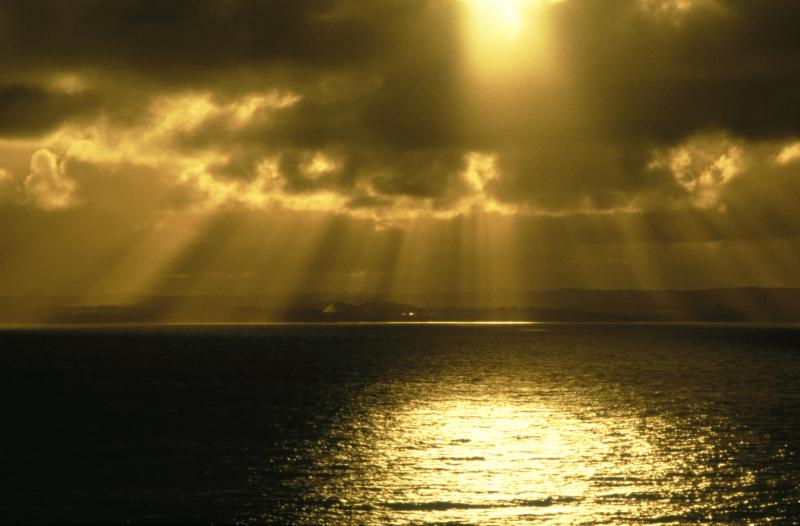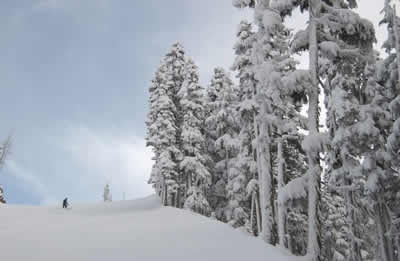|
|
|
|
|
|
|
|
Today's Congressional Action:
The House and Senate are not in session.
|
Media
 Competition Heats Up to Build Canada's First Arctic Fiber Line, as Inuit Want in. Competition Heats Up to Build Canada's First Arctic Fiber Line, as Inuit Want in. High-speed fibre-optic internet could finally be coming to Nunavut, with two groups now competing to run subsea cables through the Arctic archipelago. For the past year, Nunavut Resource Corporation, which is partly owned by the Kitikmeot Inuit Association, has been lobbying the federal government for support for a new $850-million plan to build onto existing fibre optic networks in Labrador, Quebec and the N.W.T. CBC News
[Opinion] My Turn: Outer Continental Shelf and Oil Drilling. The coming months are a critical time for our Arctic communities, as President Obama's administration will soon finalize the next five-year plan for the Outer Continental Shelf (OCS) and determine if offshore lease sales will be included in the Chukchi and Beaufort seas. While environmental groups warn Washington about the dangers of including the leases, few outsiders seem to give thought to the consequences of not including them. As someone who was born, raised and lives in Arctic Alaska, and therefore stands to be most affected by decisions regarding drilling off our coast, I want to offer a more localized perspective on this important issue. Juneau Empire
"We Need to Start Now:" New Project Aims to Train Inuit Researchers. A new research study based in Pond Inlet, Nunavut, and on Prince Edward Island is hoping to equip local Inuit with the tools they need to monitor the health of the marine mammals they rely on for food. As part of the project, hunters will harvest blood and tissue samples from the ringed seal population in the Baffin region of Nunavut, in an effort to create a baseline analysis of contaminants and pathogens. "Frankly, this is work that should have been done 10 years ago, if not 20," said Dr. Pierre-Yves Daoust, a wildlife pathologist with the University of Prince Edward Island and the Canadian Wildlife Health Cooperative. CBC News
Arctic Research Brings Science Alive for Youngsters. DJ Kast '11, MAT '14 is still haunted by two unforgettable sounds. The first is the gentle, if eerie, glassy tinkle made by perpendicular shards of candle ice in a thawing Arctic lake."When the pieces of candle ice clink against each other, it sounds like wind chimes," said Kast, Joint Educational Project STEM program manager at the USC Dornsife College of Letters, Arts and Sciences. "It's a strange and beautiful music." USC News
 Warm Ocean Currents are Slowing Down. Warm Ocean Currents are Slowing Down.
In the movie The Day after Tomorrow, melting Arctic sea ice disrupts the flow of warm surface currents headed to the North Atlantic, triggering a sudden climatic catastrophe. According to scientists, a sudden catastrophe is very unlikely. But it's true that places along the northern Atlantic Ocean - eastern North America and western Europe - have milder climates than expected for their latitudes because of ocean currents that carry warm water from the tropics northward. What's more, a recent study published in the peer-reviewed journalGeophysical Research Letters does indicate that these warm currents have been slowing since at least 2004, confirming a trend suspected before then from spottier data. Kathryn Kelly, an oceanographer at the University of Washington, talked about this new research in a statement: It doesn't work like in the movie, of course. The slowdown is actually happening very gradually, but it seems to be happening as predicted: It does seem to be spinning down. EarthSky
 Salty Snow Could Affect Air Pollution in the Arctic. Salty Snow Could Affect Air Pollution in the Arctic. In pictures, the Arctic appears pristine and timeless with its barren lands and icy landscape. In reality, the area is rapidly changing. Scientists are working to understand the chemistry behind these changes to better predict what could happen to the region in the future. One team reports in ACS' Journal of Physical Chemistry A that sea salt could play a larger role in the formation of local atmospheric pollutants than previously thought. The Arctic's wintertime ice hit a record low this year, and its air is warming, according to NASA. Previous research has shown that pollutants, including gaseous nitrogen oxides and ozone, have at times been recorded at levels similar to those one would see in more populated areas. Nitrogen oxides are air pollutants that, in sunlight, lead to the formation of ozone, the main component in smog normally associated with cities. EurekAlert
Barents Sea May Have 'Billions of Barrels' of Undiscovered Oil. The Barents Sea, including areas that lie near the Russian-Norwegian delimitation border, could hold vast crude oil reserves, an energy expert said on Wednesday. "If all the projections are correct and all uncertainties turns out positive, we are talking about billions of barrels," the head of Kuwait Foreign Petroleum Exploration Company Kristian Krakenes told broadcaster NRK, quoted by The Local. Krakenes says the projection was made thanks to new technology used in seismic surveys. RT
|
Legislative Action.gif)
No Arctic legislation was formally considered yesterday.
|
|
Future Events
Arctic Technology Conference, October 24-26, 2016 (St. John's, Canada). Founded in 1969, the Offshore Technology Conference (OTC) is the world's foremost event for the development of offshore resources in the fields of drilling, exploration, production and environmental protection. The Arctic Technology Conference (ATC) is built upon OTC's successful multidisciplinary approach, with 14 technical societies and organizations working together to deliver the world's most comprehensive Arctic event.
Fulbright Arctic Week. October 25-27 (Washington, DC) The 18-month Fulbright Arctic Initiative supports U.S. priorities on Arctic issues and increasing mutual understanding between Americans and those in other countries. As a culmination of the program, 17 scholars will be presenting their work at public events. Other invited speakers will include officials from the Inuit Circumpolar Council, Arctic Executive Steering Committee, and U.S. Arctic Youth Ambassadors, among other. For more information, please visit the Fulbright Arctic Week website and/or register your interest for updates.
October 25, 2-5:30pm - Smithsonian Natural History Museum
October 26, 2-5pm - Arctic Policy Dialogue at the Carnegie Endowment for International Peace
October 27, 9am-4:30pm - Fulbright Arctic Symposium at the National Academy of Sciences (Constitution Ave. location)
ARCUS Arctic Research Seminar Series with George Divoky, October 26, 2016 (Washington, DC USA). The Arctic Research Consortium of the US (ARCUS) is pleased to announce the Arctic Research Seminar Series event "Years of Change: a seabird responds to a melting Arctic." The ARCUS Arctic Research Seminar Series brings some of the leading Arctic researchers to Washington, DC to share the latest findings and what they mean for decision-making. These seminars will be interest to Federal agency officials, Congressional staff, NGOs, associations, and the public.
Towing Safety Advisory Committee, October 2016 Meeting, October 26-27, 2016 (Washington, DC USA). The Towing Safety Advisory Committee will meet in Washington, DC, to review and discuss recommendations from its Subcommittees and to receive briefs. This committee is established in accordance with, and operates under the provisions of, the Federal Advisory Committee Act. As stated in 33 U.S.C. 1231a, the Towing Safety Advisory Committee provides advice and recommendations to the Department of Homeland Security on matters relating to shallow-draft inland and coastal waterway navigation and towing safety.
** New this week ** 1st International Muskox Health Ecology Symposium, November 7-10, 2016 (Calgary, AB Canada). The goal of this symposium is to share knowledge on muskox health ecology and sustainability across a variety of international stakeholders including community members/users, industry, wildlife management, and academia. We will discuss: the values, ecological, economic, social and cultural, of muskoxen; population status and trends; threats, vulnerabilities and resilience or sustainability; knowledge gaps; disease ecology; and existing and new tools for muskox health monitoring and research. For more information, please contact Susan Kutz.
Annual Scientific Meeting 2016, December 5-9, 2016 (Winnipeg, MP Canada). ArcticNet will host its 12th Annual Scientific Meeting. The ASM2016 will welcome researchers, students, Inuit, Northerners, policy makers and stakeholders to address the numerous environmental, social, economical and political challenges and opportunities that are emerging from climate change and modernization in the Arctic. As the largest annual Arctic research gathering held in Canada, ArcticNet's ASM is the ideal venue to showcase results from all fields of Arctic research, stimulate discussion and foster collaborations among those with a vested interest in the Arctic and its peoples.
POLAR 2018, June 15-27, 2018 (Davos, Switzerland). POLAR2018 is a joint event from the Scientific Committee on Antarctic Research (SCAR) and the International Arctic Science Committee (IASC). The SCAR meetings, the ASSW and the Open Science Conference will be hosted by the Swiss Federal Institute for Forest, Snow and Landscape Research WSL under the patronage of the Swiss Committee on Polar and High Altitude Research. The WSL Institute for Snow and Avalanche Research SLF is organizing POLAR2018.
|
|

  
4350 N. Fairfax Drive, Suite 510
Arlington, VA 22203, USA
External links in this publication, and on the USARC's World Wide Web site ( www.arctic.gov) do not constitute endorsement by the US Arctic Research Commission of external Web sites or the information, products or services contained therein. For other than authorized activities, the USARC does not exercise any editorial control over the information you may find at these locations. These links are provided consistent with the stated purpose of this newsletter and the USARC Web site.
|
|
|
|
|
|
|
|
|